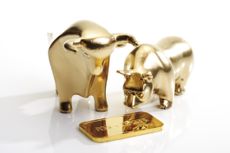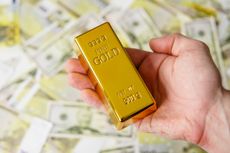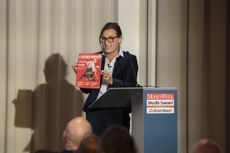Gold
The latest news, updates and opinions on Gold from the expert team here at MoneyWeek
-

Should you add gold to your pension?
Gold price movements have been eye-catching over the past year. Should you put some gold in your pension?
By Dan McEvoy Published
-

Will silver’s record streak continue?
Opinion The outlook for silver remains bullish despite recent huge price rises, says ByteTree’s Charlie Morris
By Charlie Morris Published
Opinion -

Is now a good time to invest in gold?
Gold prices enjoyed their best year since the 1970s in 2025, but does that make now a good time to invest in gold?
By Dan McEvoy Last updated
-

How to invest in gold
There are a number of ways you can invest in gold, from buying the yellow metal directly to investing in a gold ETF or buying gold-mining stocks. We look at the pros and cons of each strategy.
By Dan McEvoy Last updated
-

Metals and AI power emerging markets
This year’s big emerging market winners have tended to offer exposure to one of 2025’s two winning trends – AI-focused tech and the global metals rally
By Alex Rankine Published
-

Should you invest in gold coins?
Gold coins are issued for both commemorative and investment purposes. Know which is which before you buy
By Dan McEvoy Last updated
-

Circle sets a new gold standard for cryptocurrencies
Cryptocurrencies have existed in a kind of financial Wild West. No longer – they are entering the mainstream, and US-listed Circle is ideally placed to benefit
By Jamie Ward Published
-

Key lessons from the MoneyWeek Wealth Summit 2025
Our annual MoneyWeek Wealth Summit featured a wide array of experts and ideas, and celebrated 25 years of MoneyWeek
By MoneyWeek Published
-

How Isaac Newton created the gold standard by accident
Isaac Newton brought about a new global economic era by accident, says Dominic Frisby
By Dominic Frisby Published
